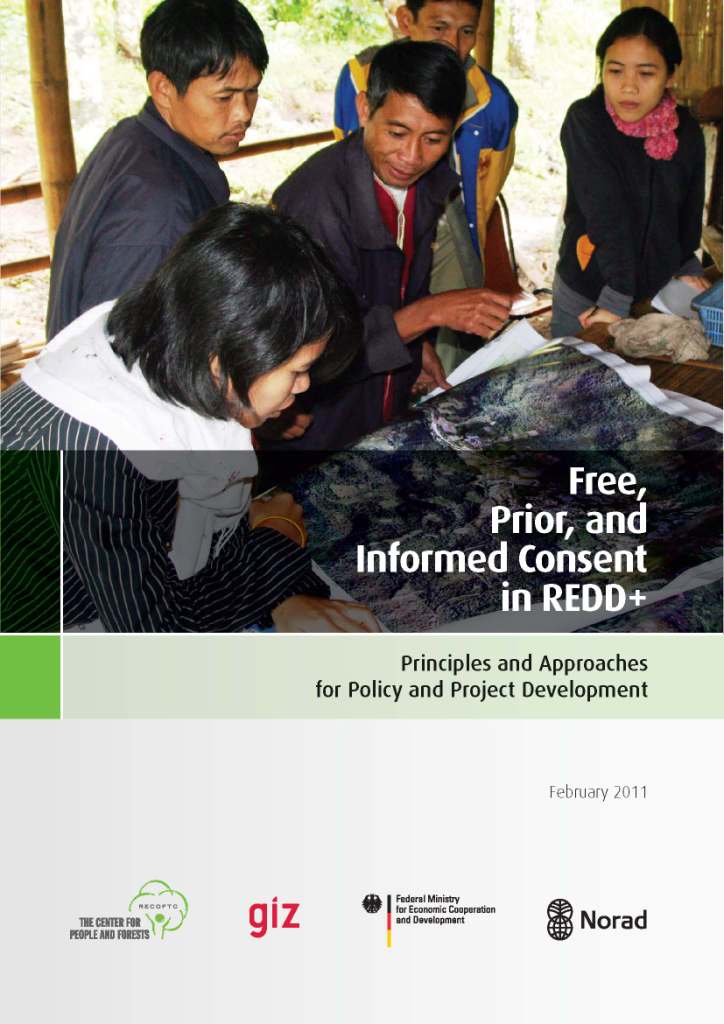
On 1 March 2011 Deutsche Gesellschaft für Internationale Zusammenarbeit (GIZ) and the Center for People and Forests (RECOFTC) launched a Guidebook on “Free, prior and informed consent in REDD+: Principles and Approaches for Policy and Project Development” at a regional GIZ conference in Bangkok. The publication has been developed jointly by the GIZ Sector Network Natural Resources and Rural Development – Asia and RECOFTC’s Grassroots Capacity Building Program for Reducing Emissions from Deforestation and forest Degradation (REDD) in the Asia-Pacific Region with the involvement of a consortium of NGOs and CSOs working on REDD+ projects or on indigenous rights in the region.
Put simply, “free, prior and informed consent” (FPIC) is the right of indigenous peoples to say “yes, and how” or “no” to developments affecting their resources and territories. It is based in international and in some countries also in national law. Its legal status has been strengthened through the adoption of the UN Declaration on the Rights of Indigenous Peoples (UNDRIP) in 2008. Originating in the right of indigenous peoples to self-determination it is increasingly being extended to all local communities with historic or customary connection to the land and resources they use. FPIC is discussed as one of several safeguards for REDD+.
The guidebook describes what it takes to respect the right to free, prior and informed consent in REDD+ projects and programmes. During the launch GIZ practitioners, staff members of RECOFTC and Bangkok-based representatives of the global UN-REDD programme discussed the challenges involved in following such a rights-based approach with questions centering around at what level processes to respect the right to FPIC are feasible and how they relate to national legal frameworks.
The FORCLIME programme will soon provide an Indonesian language version of the guidebook.
The guidebook can be downloaded here: FPIC in REDD






